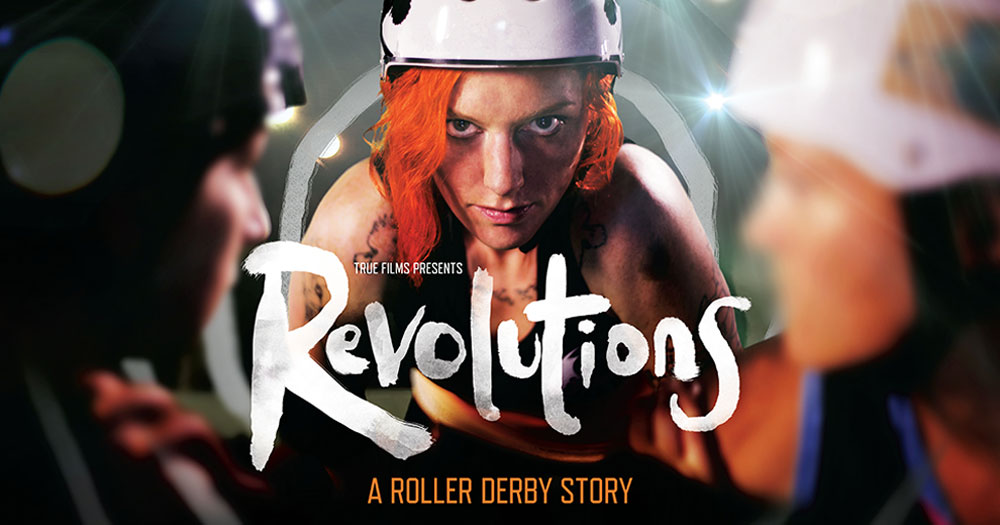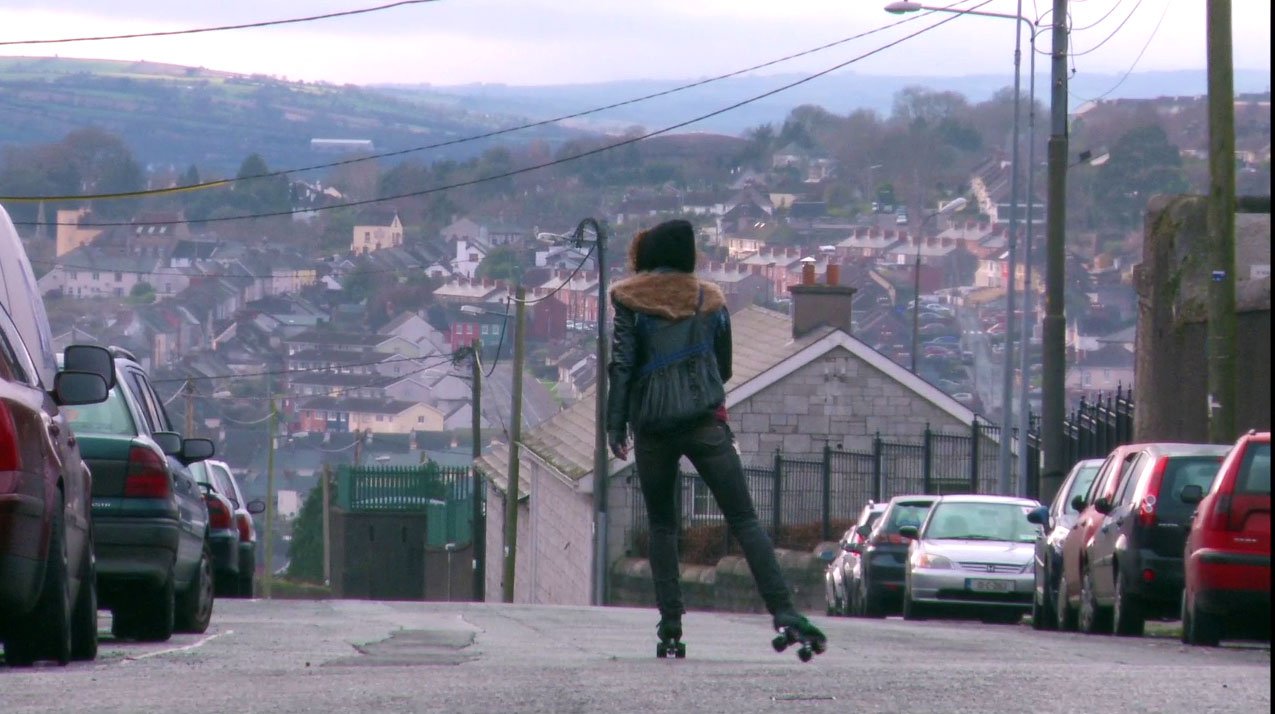“Roller Derby teams are all run like a grass routes organisation where everyone has an essential role and at a time when so many people were unemployed or struggling at work, the excess energy that these women had was poured into Derby” says the director of ‘Revolutions’, Laura McGann
Laura McGann first uncovered the world of competitive women’s roller derby six years ago, which prompted her to create the documentary film Revolutions. Here we catch up with the Kildare filmmaker to find out a little more about her inspiration for the documentary and what audiences can expect when they catch it in cinemas in July.
1. How did you first discover the world of women’s roller derby?
I think I must have been targeted by Dublin Roller Girls Facebook advert, something popped up on my newsfeed in June 2011 and it caught my attention so I started digging, I watched their videos and couldn’t quite believe my eyes. I had seen Whip It, with Drew Barrymore and Ellen Page and I loved how fearless and queer the scene was and I knew I had to reach out to find out more.
2. What was it that caught your interest?
Initially, it was the sport that grabbed my attention, it’s not every day you discover that there’s an underground scene of super tough women playing this incredibly aggressive sport at high speed and on skates down the road in Inchicore.
Roller Derby was like a coping mechanism for the unemployed.
Not only was this a super interesting looking world but there was actually a story to follow too. The first day I brought my camera along was the first team Ireland training session in Inchicore. I was warned by a passing skater that she would skate through me if I got in her way… I was a bit nervous for the camera but took the order without reacting and stayed well out of the way! This was Zola Blood, one of the best Jammers in the country – she would go on to win Ireland’s most valuable player (MVP) at the World Cup, I would film with her for the next 5 years and we would become great pals.
3. Tell us about the people you met making Revolutions.
I met women who showed an intense passion for the sport, the energy was fizzy, they zealously disagreed with each other yet the spirit was so joyful. They were fiery and fearless and didn’t give a shit.
As I got to know the girls, I discovered another layer to the story. As Zola put it “Roller Derby was like a coping mechanism for the unemployed.”
Any good story starts with someone who wants something, and in Ireland in 2011 a lot of people were left wanting. The country was crippled by the recession and people’s entire careers were wiped out overnight. Zola had a Ph.D but no job and Crow’s small business had ground to a halt.
Roller Derby is a full contact team sport, played on roller skates on an oval flat track.
Roller Derby teams are all run like a grass routes organisation where everyone has an essential role and at a time when so many people were unemployed or struggling at work, the excess energy that these women had was poured into Derby – the workforce’s loss became roller derby’s gain!
4. Can you explain how roller derby works in a couple sentences?
Roller Derby is a full contact team sport, played on roller skates on an oval flat track. A bout lasts 1 hour, split into 2 half hours and again into 2-minute jams. There are two teams on the track at any one time, each team is made up of 4 blockers and 1 jammer.
The jammer’s job is to pass the members of the opposing team and for every skater she passes her team gets a point. The blockers job it to stop the opposing jammer getting past. It sounds more complicated than it is, watch the trailer and you’ll get the gist.
5. What’s your favourite bit from the documentary?
There are some super exciting scenes that are full of tension and jeopardy but my favourite is a quieter scene towards the end of the film when our two main characters have very big decisions to make and are trying to figure out the right thing to do and how to move forward.
6. What was the best scene you had to cut from Revolutions and why did it have to go?
We cut a scene where I asked Crow what her plan for the next 6 months was with the team and her teammate Lucky jumped in and nearly had a heart attack because she thought Crow was going to give away secrets to the camera – it showed how intense the competition was but it was also super funny because Lucky thought I might show it to the Dublin team.
We cut it because it wasn’t really driving the story forward but now that I think if it I must find that clip and put it on our Facebook. It was 6 years ago so the secrets are well and truly out of the bag now so they won’t mind!
Nick Broomfield was my first love. His tenacity and the way he spoke to people fascinated me, he normalised the relationship between the director behind the camera and the person in front of the camera
7. Who is your filmmaking idol and why?
Nick Broomfield was my first love. His tenacity and the way he spoke to people fascinated me, he normalised the relationship between the director behind the camera and the person in front of the camera. I was at university in Liverpool and basically his films didn’t hide the ladder, I learned how to make documentaries by watching his, because the making of the film was part of the story. I really felt like I fell on my feet when I discovered his films, so I bought his life’s work and decided I was going to make documentaries.Kim Longinotto grabbed my attention when I saw her doc about divorce in Iran. She stands in the corner of a room and capturers scenes playing out in front of her – being invisible in the room – it’s a big part of the job.
Kim Longinotto grabbed my attention when I saw her doc about divorce in Iran. She stands in the corner of a room and capturers scenes playing out in front of her – being invisible in the room – it’s a big part of the job.
8. What’s your favourite film / documentary / tv show?
Searching for Sugarman is my favourite doc. Just watch it. I’m also loving Chef’s Table on Netflix at the moment – it’s really beautiful.
9. What’s your next project about and when will we be seeing that?
I’m developing a film about Irish women who went unnoticed which will hopefully take me half time that this one took – so let’s say 2020?
10. When and where can people watch Revolutions?
Revolutions is screening in the following venues:
Irish Film Institute, Dublin – From Friday 30th June
Special opening night Q&A at 6.15pm, tickets here.
Triskel Christchurch, Cork – From Sunday 2nd July
Special opening night Q&A at 6.30pm, tickets here.
Belltable, Limerick
Monday 31st July at 8pm , tickets here.
Check out the official trailer for Revolutions below to see what’s in store.
© 2017 GCN (Gay Community News). All rights reserved.

